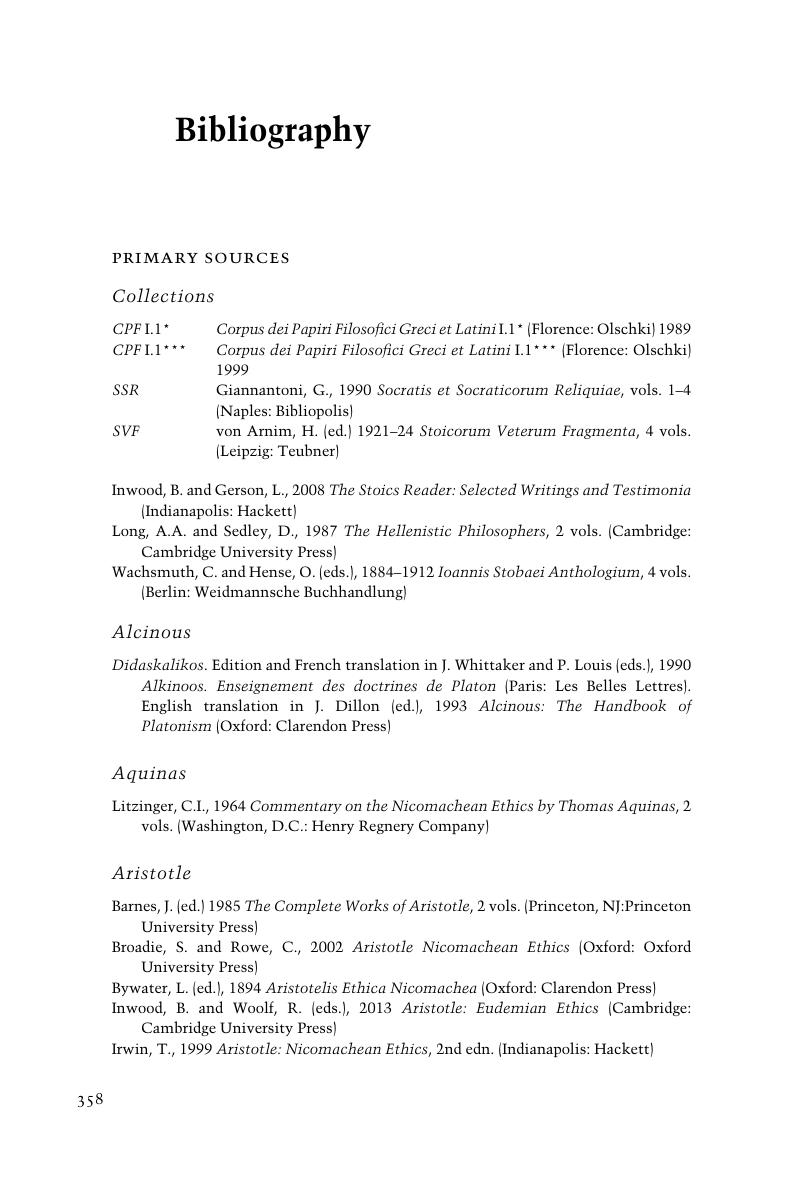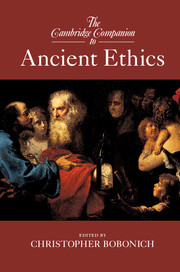Book contents
- The Cambridge Companion to Ancient Ethics
- Other Volumes in The Series of Cambridge Companions
- The Cambridge Companion to Ancient Ethics
- Copyright page
- Contents
- Contributors
- Acknowledgments
- Introduction
- I Origins
- II Plato
- III Aristotle
- IV The Hellenistics and Beyond
- V Themes
- Bibliography
- Index
- Other Volumes in The Series of Cambridge Companions
- References
Bibliography
Published online by Cambridge University Press: 26 July 2017
- The Cambridge Companion to Ancient Ethics
- Other Volumes in The Series of Cambridge Companions
- The Cambridge Companion to Ancient Ethics
- Copyright page
- Contents
- Contributors
- Acknowledgments
- Introduction
- I Origins
- II Plato
- III Aristotle
- IV The Hellenistics and Beyond
- V Themes
- Bibliography
- Index
- Other Volumes in The Series of Cambridge Companions
- References
Summary

- Type
- Chapter
- Information
- The Cambridge Companion to Ancient Ethics , pp. 358 - 380Publisher: Cambridge University PressPrint publication year: 2017



